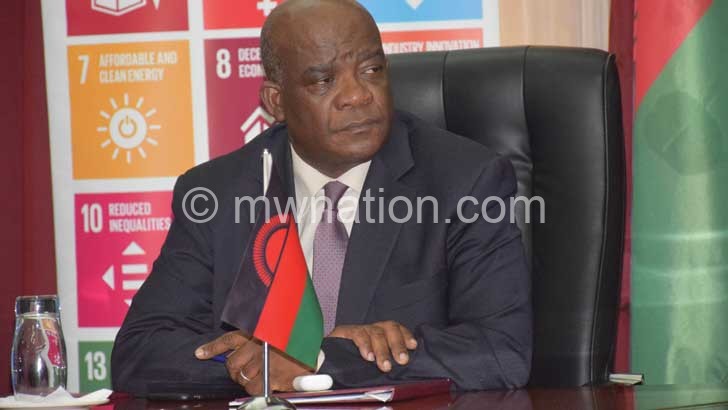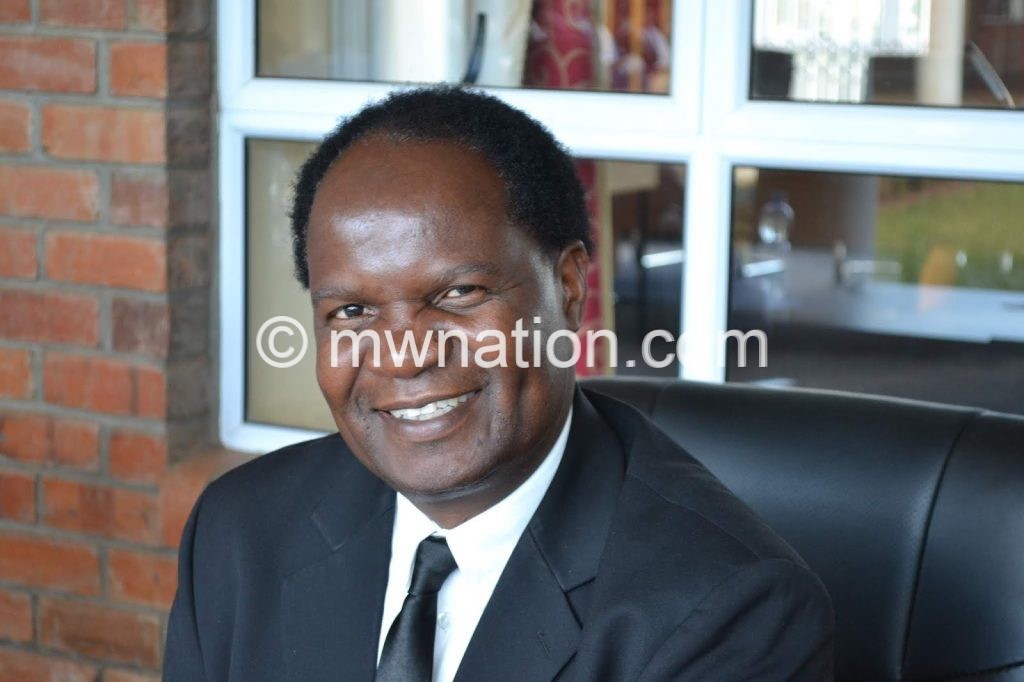Muhara awol
- Judiciary blank when he’ll report back
- Legal commentators feel position is untenable
Six months after the governing Democratic Progressive Party (DPP) was ousted, former Chief Secretary in the Office of the President and Cabinet (OPC), Lloyd Muhara, has not reported back to work at Judiciary, where he is a judge.
Interestingly, not even the Judiciary has an idea when Muhara, seconded to OPC during DPP’s administration, would return.

But legal commentators have since described Muhara’s position on the bench as untenable, following his courting of controversy during the DPP rule.
Newly appointed registrar of the Supreme Court of Appeal and the High Court of Malawi Gladys Gondwe confirmed, in a written response, that Muhara was yet to report for work.
But asked if she had an idea when Muhara would report back for work, she said “no”.
Muhara, on several attempts and on different days, couldn’t be reached on his mobile phone when Nation on Sunday wanted to ask him about his return to the Judiciary.
But some legal experts feel that Muhara’s position as a judge is untenable owing to his work at OPC during which time the Judiciary and the Executive clashed over the principle of separation of powers.
A professor of law at Chancellor College Garton Kamchedzera said in a written response that Muhara gravely breached the principle of separation of powers when he accepted to be Chief Secretary to the Cabinet.

“When in that role, he acted with horrible impunity in attacking the principles of independence of the Judiciary and separation of powers.
“He should not be allowed to violate these principles again by returning to the Judiciary he denigrated. The public needs to have confidence in the Judiciary,” he said.
Kamchedzera feared that Muhara’s return to the Judiciary would erode that public confidence and trust in the justice system and in the very idea of justice.
A prominent lawyer, who opted not to be named, also said in an interview Thursday, that he found Muhara conflicted over some of the decisions he made when he was at OPC and it would pose challenges for him to hold that office of a judge.
The legal expert said there were decisions he made while serving in the Executive arm of government that did not endear him with his colleagues, and the worst of them was when he attempted to force Chief Justice Andrew Nyirenda, his supposed boss now, and Malawi Supreme Court of Appeal judge Edward Twea to go on early retirement.
“I don’t see him serving as a High Court judge to the satisfactory of the people of Malawi. The relationship with his colleagues is that bad and I don’t imagine the kind of working environment he would find himself in,” said the law expert.
He said he did not know how authorities would want to treat this matter, “but Muhara’s return to the Judiciary would be totally out of order and not in the interest of the public he is expected to serve”.
The High Court a couple weeks ago, in a judicial review case, found Muhara and former president Peter Mutharika on the wrong side of the law following their attempts to force Nyirenda and Twea to go on an early retirement.
Justice Charles Mkandawire, who earlier on faulted Mutharika and Muhara on their decision, ordered the two to personally pay costs of the case.
After the court’s earlier judgement that faulted the two, lawyers that represented Human Rights Defenders Coalition (HRDC), Association of Magistrates in Malawi and Malawi Law Society (MLS), being applicants in the matter, asked the court to order Mutharika and Muhara pay court costs personally, and the court resolved to look into this matter separately; hence that order.
Judge Mkandawire had argued that the two acted defiantly, were unreasonable [and] were not prudent, acted outside their constitutional mandate and very wanting.
“As it was already submitted by the applicants’ counsel, the two respondents are well seasoned lawyers. One [is] a professor of constitutional law. The other [is] a judge of High Court. They should have been very conversant with fundamentals of the constitution and in particular issues separation of powers and judicial independence,” Mkandawire, recently promoted to the Supreme Court bench by President Lazarus Chakwera, had argued.
The court had said this was a proper case where Mutharika and Muhara should be made personally liable to pay costs, and the court ordered so, further instructing the registrar to assess the costs.
Mutharika and Muhara have appealed against the order to have them pay personally from their acts, arguing they acted in their official capacities.
The DPP administration, before it was ousted from power through the June 23 court-sanctioned fresh presidential election, wrote the Chief Justice and judge Twea of Supreme Court, directing them to proceed on leave pending retirement.
This was soon after the High Court, sitting as a Constitutional Court in Lilongwe, had annulled last year’s presidential election and ordered the fresh poll in the historic February 3 2020 judgement, a decision that was upheld by the Supreme Court after an appeal by Mutharika, President then, and the Malawi Electoral Commission (MEC).
In September, a group of lawyers and legal scholars also petitioned Malawi Law Society (MLS), protesting the expected return of Muhara to the bench, and raised same concerns that his acceptance of a position at OPC violated the principle of separation of power.
Mutharika, before he lost power, heavily attacked the Judiciary publicly, accusing it of aiding the opposition to overthrow his administration. The attacks coincided with the letters Muhara wrote to the Chief Justice and Twea, forcing them to go on leave pending retirement.
The lawyers had argued that even if Muhara contended that he was only acting on behalf of others on the abortive forced retirement of the senior judges, his actions amounted to failure to defend the Constitution.





